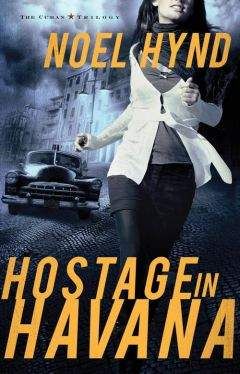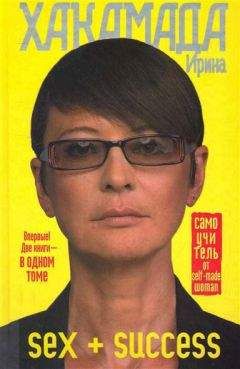Noel Hynd - Hostage in Havana
На сайте mybooks.club вы можете бесплатно читать книги онлайн без регистрации, включая Noel Hynd - Hostage in Havana. Жанр: Полицейский детектив издательство неизвестно,. Доступна полная версия книги с кратким содержанием для предварительного ознакомления, аннотацией (предисловием), рецензиями от других читателей и их экспертным мнением.
Кроме того, на сайте mybooks.club вы найдете множество новинок, которые стоит прочитать.

Noel Hynd - Hostage in Havana краткое содержание
Hostage in Havana читать онлайн бесплатно
She made a decision. She would try to follow his conversation, to see at least where he was leading. “Yes, I know who Bunuel was,” she answered in Spanish.
“Good. What was he known for?”
“Films,” she said.
“What sort of films?”
“Enigmatic ones,” she said. “Bunuel’s films were famous for their vibrant and distorted imagery.”
“Very good,” the major answered. “There were scenes where noble young men who aspired to sainthood were tempted by prostitutes. There were women with beards, bears in living rooms, and chickens populating nightmares. He was also well-known for his atheism. Bunuel once made a film in Mexico about a village too poor to support a church and a priest. Yet the place was happy because no one suffered from guilt. ‘It’s guilt we must escape from, not God,’ Bunuel once said. He also once said, ‘Thank God, I’m an atheist.’ Now. Talk to me, mi amiga. What do you think of all that?”
“I don’t think anything about it because I haven’t thought much about it,” Alex answered.
They had worn her down physically. Alex now knew they were starting the mind-twisting games. Mejias wasn’t even taking notes. She assumed that, somewhere, others were listening and that a recording was being made. She held by her cover story, that she was a Mexican citizen and had come into the country legally on the twenty-fourth of May. At this point, she was praying they were plain stupid, or inefficient.
“I’m going to ask you several more questions,” Major Mejias continued in English. “You would be wise to cooperate. If you answer all of our questions, we can afford to be extraordinarily generous. We might even send you back home after a short time. Home is America, isn’t it? Now, why don’t you begin by telling me your real name?”
“Anna Tavares,” Alex said again. The major steepled his fingers.
“Very well,” Mejias said, adding in English, “let’s try another. En realidad, let’s try this again from the beginning. Why are you in Cuba, and why did you enter the country illegally?”
“Hablo espanol,” Alex said.
“Yes. Of course you do,” Major Mejias said. “But you also speak English,” he said, switching back to Spanish. “We all know this. How is my English, by the way? I think I speak it reasonably well. I spent two years at the University of Toronto. Have you been there? It’s quite a beautiful institution. Beautiful city also. But they only have two seasons – winter and July.”
“Hablo espanol,” Alex said again.
“I’d like to see your hands,” Major Mejias said.
Alex didn’t make a move. Her hands were already on the table out in front of her.
“Sus manos,” he said.
He reached to Alex’s hands and turned them palms up. She did not resist. A condemned feeling started to creep up on Alex, one that went with her sense of panic. It wasn’t just the situation, the filth, the danger; it was also the unrelenting isolation. The heat continued to assail her as well. She could even hear the occasional tick of her own sweat hitting the floor. And there was a stench in this office, even worse than the stench of backed-up plumbing in the jail. At least the bugs were gone, for now.
Major Mejias examined the interior of Alex’s hands, paying special attention to the palms and fingers.
“Interesting,” he said in English. “It is amazing how much one can tell about a woman by her hands. You have very nice hands. The hands of a wealthy woman perhaps. No scars, no nicks, no calluses. You work for a living as something professional, such as a lawyer or an accountant or a businesswoman. Or you don’t work at all, which means you’re married to a man who is highly affluent.”
He pulled his own hands away and gave Alex’s back to her.
“I’m told that you insist that you are Mexican,” he said. “But a Mexican lady of your social status would speak passable English. At least that’s my experience. Yet you refuse to speak to me in English or acknowledge my efforts. That tells me you’re hiding something.” He paused. “You already owe me one enormous favor,” Mejias continued. “You were in line for some of the more brutish inquisitors, people who have trained against the drug traffickers and who use unspeakable physical means to obtain answers. In some rare cases, yours being one, I am allowed to intercede when we have a more sophisticated prisoner. So I have limited time with you. How limited, even I do not know. I will need to leave today with something, or the more thuggish in my trade will take over. Do you understand what I’m saying?”
“Hablo espanol, no hablo ingles,” Alex said.
“Let’s cut the charade, shall we? How are you feeling?” he asked in Spanish. “Have you been treated well?”
“No,” she said.
“Good,” he answered. “This is a prison. That’s the way prisons should be. Prisons are the sewers of civilization. Do you wish to spend the rest of your life in a sewer, maybe die there, too?”
He again took her hands, gently, not roughly, but as a physician might.
“Look at this white powder, for example. It’s from the jail cell, isn’t it? I’m told that there is a microscopic bacteria in it that infects the flesh. A small parasite perhaps. Hydrocortisone cream soothes it. Perhaps you’d like to see a doctor after you start to speak with me.”
He released her arm, and she pulled it away.
He sighed. “Very well,” he said. “I’ve attempted to be cordial. I’ve known some criminals who took a long time before they finally decided to speak. Months, years sometimes. Eventually all of them wished they had spoken sooner. We will hold you as an enemy of the Revolution for as long as you need before you decide to talk to me. And yet,” he mused, “the travesty of all this is that it would be unnecessary in your case. We are disposed to send you back to where you came from or at the very least trade you for something we want. What is the point of spending time with common prostitutes, burglars, and drug pushers in prison when you could be free in a matter of days? On the other hand, I can walk out of here and you cannot. Until categorized otherwise, you are an enemy of the Cuban Revolution. Do you know what the women’s prisons are like in this country? You would be sent to a very rough one where there are ten to twelve women per cell.
A very pretty white-skinned woman like yourself, well, the results can be unspeakable.”
“I will speak to you only in Spanish,” Alex said in Spanish.
“Muy bien,” he said. “Hablamos espanol.”
“I wish to see someone from the Mexican Embassy,” Alex again said in Spanish.
“That is not going to happen.”
“Why not? Have I no rights?”
“To start with, you are American. You see, here is the problem. You gave us a name and told us that you came into Cuba on a Mexican airliner on May 24. That is in the police report and it is what you told me. But you are lying. We looked at the flight manifests for that day. There was no one by that name on the plane. Nor was your passport stamped. We could take the time to review the immigration video surveillance for that day, but that would only further prove to us the lie that you are telling to us. So let us begin again. What is your real name?”
Alex fell silent. Her cover was blown, and they both knew it. The prospect of spending ten years in a Cuban prison hit her like a kick to the stomach.
“You see, we can be very patient in Cuba. Those in the first revolutionary generation outlasted Batista, and then our enemies felt that they could outlast Castro. Yet half a century has passed and la Revolucion still controls Cuba.” He paused. “Do you support the Cuban revolution or not? My guess is you do not.”
She remained quiet.
“Last month they sent two American women to Cuban prisons, one for twelve years, the other for fifteen. One was a black-market currency dealer. The other was someone who was arranging foreign passports and exit conduits. You know, I tried to help them also. They resisted me. Twelve years. Fifteen years. That’s a terrible price to pay, isn’t it?” He paused. “I would think you might be sentenced to twenty. Is that what you wish to do with the middle years of your life?”
He lit a small cigar.
“They will work on you in the crudest of ways. No sleep, a lot of physical pain, disorientation, no days or nights, either a hood over your head or the white light of the cells nonstop for weeks. It will be a slow contest between you going insane and breaking physically. And then of course,” Mejias continued, “there are other things. Female prisoners are sometimes subjected to injections of drugs to make them physically dependent. They become the forcible mistresses of certain guards. Officially, this does not go on in the socialist paradise, but I have seen it myself. You are a very pretty woman. I can only shudder at what could happen to you in the penal system.”
“I don’t know what you want from me,” Alex said.
“An admission of guilt,” he said. “You’ve been under surveillance since you arrived in Havana,” he said. “From Havana to Cojimar. Do you think we cannot track from the air? Do you think we are backward here?” He paused. “Where did you go after Cojimar?” he asked. “Back to Havana or some other place of interest?” She squeezed her eyes shut. He paused again. “Who is the man whose residence you were leaving when we arrested you?” he asked.
“I don’t know.”
“But you spent the night with him.”
“We met at a hotel. We had some drinks. That’s all.”
“You’re a liar.”
A thought was upon her, a desperate one. She had one card to play and almost resisted playing it, for if it failed she had nothing left.
“Figaro,” she said.
“What?” he answered rudely.
“You mentioned Spain before. There is an opera. The Barber of Seville.”
“I hate opera,” he snapped. He was suddenly angry. “Pomp and extravagance, the indulgence of the capitalist ruling classes. My wife listens to opera. Drives me out of the house with it! Maybe I should lock her up too. Why do you even mention it, opera?”
“I don’t know,” she said softly. “It was just a thing to say.”
“Why do you fail to understand the gravity of your situation?” he pressed. “No one outside of Cuba knows where you are. I am your only chance, and you are babbling, giving me nothing. I need a confession from you,” he said. “Who are you, who came to Cuba with you, and what is your purpose?”
She stayed silent.
“All right,” he said. “Have it the way you wish. He reached to a side drawer of his desk and pulled out a box, the type used to hold evidence. He opened it. He pulled from it her credit cards and her Mexican passport and laid them on the center of the desk. Then he pulled out her Walther and set it on the table with a loud flourish. The magazine had been removed.
“These are the tools of a saboteur.” He pushed them around disdainfully. “Why don’t you at least identify the agency that sent you to Cuba? CIA? A nod will suffice and get you a better cell, a private one.”
Nothing from Alex.
“You will tell me nothing, but I will tell you this,” Mejias said. “The airplane that came to take you back to America left the country without you this morning. The aging defector, the man you came to get, Roland Violette, was on it. He is mentally ill and no use to anyone. He also murdered an old adversary in love the other night in Havana. A Frenchman. So of course Violette wished to flee. Also on the plane was the man who came into Cuba with you. His name is Paul Guarneri. He sends his regards, I would suppose, as he left you behind to face the wrath of Cuban law. How do you like that?”
She refused to answer, much less believe what she was hearing.
“Where were you six nights ago?” he asked.
“I don’t remember,” she said with a shrug.
“You don’t remember!” His voice rose sharply in anger. “You don’t remember? Six nights ago a patriotic Cuban named Julio Garcia was shot to death as he peaceably ate his dinner at a restaurant in Habana Vieja. A single assassin walked in, a man connected with American gangsters, and shot him in the face with a Browning .38 special. You are telling me that you have no knowledge of this? Do you insist you were nowhere near the scene of the murder?”
“Yes, I do!” she said. “I had nothing to do with anything like that!”
“The murder was done by your gangster friend to settle an old family grudge. So you are linked to that also, as well as the man who committed the murder of a patriotic Cuban! That is what we have on you. Illegal entry into Cuba. Sabotage. Espionage. Gangsterismo. Links to two homicides. What do you say? You and you alone have been left behind to face the wrath of the law.”
She looked up.
“I have nothing to say. Speak to my embassy.”
“If you think you will be spared a firing squad because you’re a woman,” he said, “think again!”
“I have nothing to say,” she said softly.
“We will speak again,” he said. “You are my prisoner. Indefinitely.”
In a fury, he stood. He gathered his evidence and went to the door.
He shouted profanely to his guards who were a short distance down the hall. Then two new ones appeared. They each took Alex by an arm and roughly ripped her from her chair. They marched her down several unfamiliar corridors and opened an iron door that led to a small cell. They pushed her in. The door slammed behind her.
There was a sink against one wall, a mattress and a hole in the cement floor. There was one window, way up high, maybe twelve feet off the ground. There was no way she could get to it, nor would she have been able to get through it.
She was in isolation but had no idea for how long. She sat on the stone floor, let her face sink into her hands and prayed as she hadn’t prayed in months. Then she broke down completely and cried.
SIXTY-ONE
For the next two days, Alex remained in isolation. A brutal overhead light burned all the time. Breakfast was served at 5:00 a.m., a piece of bread, a banana, and a dirty plastic bottle filled with water. The water contained particles of something and had a strange tint to it.
Strangely, there was no more questioning. Alex feared that her captors, in their incompetent but Third-World way, were trying to find out more about who she was. Maybe Paul hadn’t really fled. Maybe they were searching for him. All she knew was that her head was turning mushy. Thoughts of suicide returned to her, like an old, unwelcome adversary, an evil black spirit, that she had already defeated once in the dark days after Kiev.
Against these dark impulses, she tried to weigh everything that her Christian faith had brought to her: having been on the threshold of suicide before, she was later grateful for not having pulled a trigger. But where was God now?
Похожие книги на "Hostage in Havana", Noel Hynd
Noel Hynd читать все книги автора по порядку
Noel Hynd - все книги автора в одном месте читать по порядку полные версии на сайте онлайн библиотеки mybooks.club.




